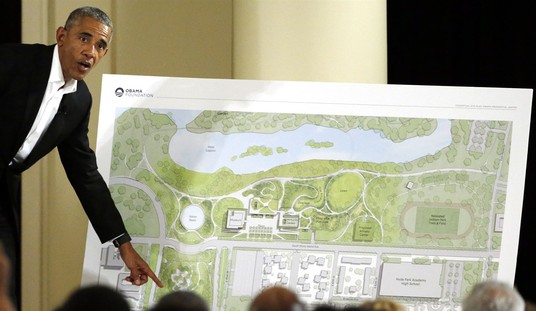Amidst all the “soaring rhetoric” and many high-sounding words in Barack Obama’s inauguration speech, one word was conspicuous precisely by its absence: “democracy.” Neither the noun “democracy” nor the adjective “democratic” was uttered. The “democracy agenda” so closely associated with the foreign policy ideas of President Bush appears to be well and truly off the table. But the “democracy agenda” was not only an integral part of Bush foreign policy; it has — at least on the level of rhetoric — been an integral part of American foreign policy as such for decades now.
George W. Bush mentioned the words “democracy” or “democratic” three times in his second inaugural address in 2005 and three times in his first inaugural address in 2001. Bill Clinton mentioned the word “democracy” five times (once in the plural) in his second inaugural address in 1997 and four times in his first inaugural address in 1993. George H.W. Bush mentioned the word “democracy” five times in his inaugural address in 1989.
Barack Obama in 2009: zero. Change has indeed come to America.
One has to go all the way back to 1981 and Ronald Reagan’s first inaugural address to find a presidential inaugural address in which the words “democracy” or “democratic” do not appear. But if the word “democracy” was missing from that speech, the idea itself was abundantly present, as in:
From time to time, we have been tempted to believe that society has become too complex to be managed by self-rule, that government by an elite group is superior to government for, by, and of the people. But if no one among us is capable of governing himself, then who among us has the capacity to govern someone else?
Or:
So, as we begin, let us take inventory. We are a nation that has a government — not the other way around. And this makes us special among the nations of the Earth. Our government has no power except that granted it by the people.
Barack Obama spoke loftily of American “ideals.” But he spoke so loftily, at such a high level of abstraction, that one would not even know what they are. And, in any case, the main reference to those “ideals” — “As for our common defense, we reject as false the choice between our safety and our ideals,” etc. — was obviously just a stick to beat President Bush on his way out the door. Thus CNN, recognizing its cue, deftly cut away to a close-up of the somewhat pained expression on the outgoing president’s face.
But how can we know if we are preserving “our ideals” if we do not even name them?
Incidentally, the new president followed these remarks with an historical allusion that perfectly illustrates how his vacuous rhetoric produces outright howlers when it risks coming somewhat closer to matters of fact. “Recall that earlier generations faced down fascism and communism not just with missiles and tanks,” he said, “but with sturdy alliances and enduring convictions.” But, of course, America’s key ally in defeating “fascism” — or, more precisely, Nazism and, more precisely still, Nazi Germany — was none other than the Soviet Union. This was anything but a “sturdy alliance.” It was entirely tailored to the needs of the moment and the only shared conviction on which it was based was the conviction that Nazi Germany had to be defeated. As President Obama’s own reference to “facing down communism” unwittingly reminds us, after this task was achieved, the two World War II allies soon resumed their more natural role of adversaries. Important lessons might indeed be drawn from this experience for America’s current war with Islamic extremist organizations. But those lessons have nothing to do with President Obama’s comforting platitudes.









Join the conversation as a VIP Member